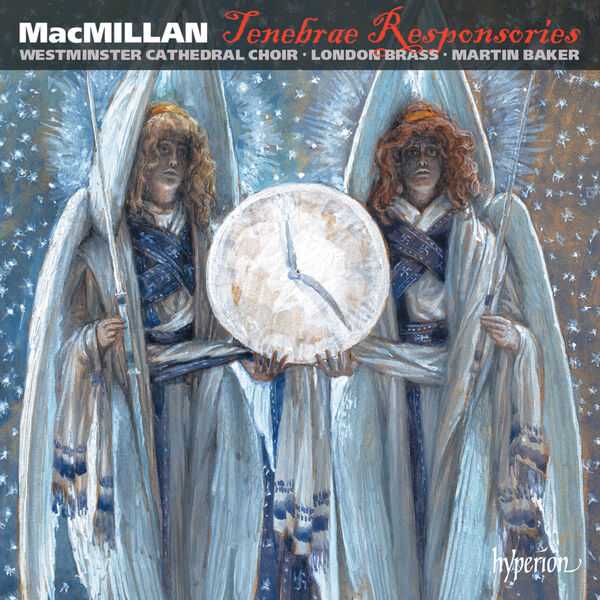

Composer: James MacMillan
Performer: Peter Stevens, Alexander Hopkins, Westminster Cathedral Choir, London Brass, Philip Jones Brass Ensemble
Conductor: Martin Baker
Format: FLAC (tracks)
Label: Hyperion
Catalogue: CDA67970
Release: 2013
Size: 1.1 GB
Recovery: +3%
Scan: yes
01. Tu es Petrus
02. anon.: Dignus est Agnus
Tenebrae Responsories
03. I. Tenebrae factae sunt
04. II. Tradiderunt me
05. III. Jesum tradidit impius
06. Summae Trinitati
07. Benedictus Deus
08. Ave maris stella
09. Tota pulchra es
10. After Virtue
11. Serenity
12. The Edinburgh Te Deum
13. Ecce sacerdos magnus
14. Processional on Tu es Petrus
Westminster Cathedral Choir returns to acclaimed Scottish composer James MacMillan, whose powerful, passionate and luminous music has made him one of the best-loved choral composers of today.
Included on this recording is a dramatic setting of the Tenebrae Responsories, a spiritually engaging and emotionally involving work which relates back in its searing intensity and some of its choral effects to Seven Last Words from the Cross (1993) (recorded on Hyperion CDA67460), one of MacMillan’s seminal earlier works.
The choir is joined by London Brass for jubilant settings of Tu es Petrus, Summae Trinitati and Ecce sacerdos magnus.
This release presents a group of Tenebrae Responsories (pieces for the last three mornings of Holy Week, marked in Catholic tradition by a service in which candles are extinguished), plus a selection of other works of the 2000s and 2010s by Scots composer James MacMillan. MacMillan has gained popularity with a style mixing a spiritual religious style with elements of Scots and other traditional styles. The music here tends toward the former, with several of the smaller pieces (sample Ave maris stella, track 8) adopting an almost neo-Renaissance polyphony; there are several works that could be added profitably to the repertory of almost any choir. Some of the music has a stark accompaniment in brass, but the three responsories themselves are set a cappella. They were inspired by Tomás Luis de Victoria’s settings of these texts and aim toward a comparable solemnity. If they don’t quite achieve that, they do offer the listener for whom John Rutter is starting to cloy an alternative vision of contemporary crossover music from the British Isles, one that has a bit more tension to it. The responsories have been recorded by several groups, including the Sixteen, but this one, recorded by the Westminster Cathedral Choir operating on its hallowed home ground, is well worth considering; it is very clearly recorded.